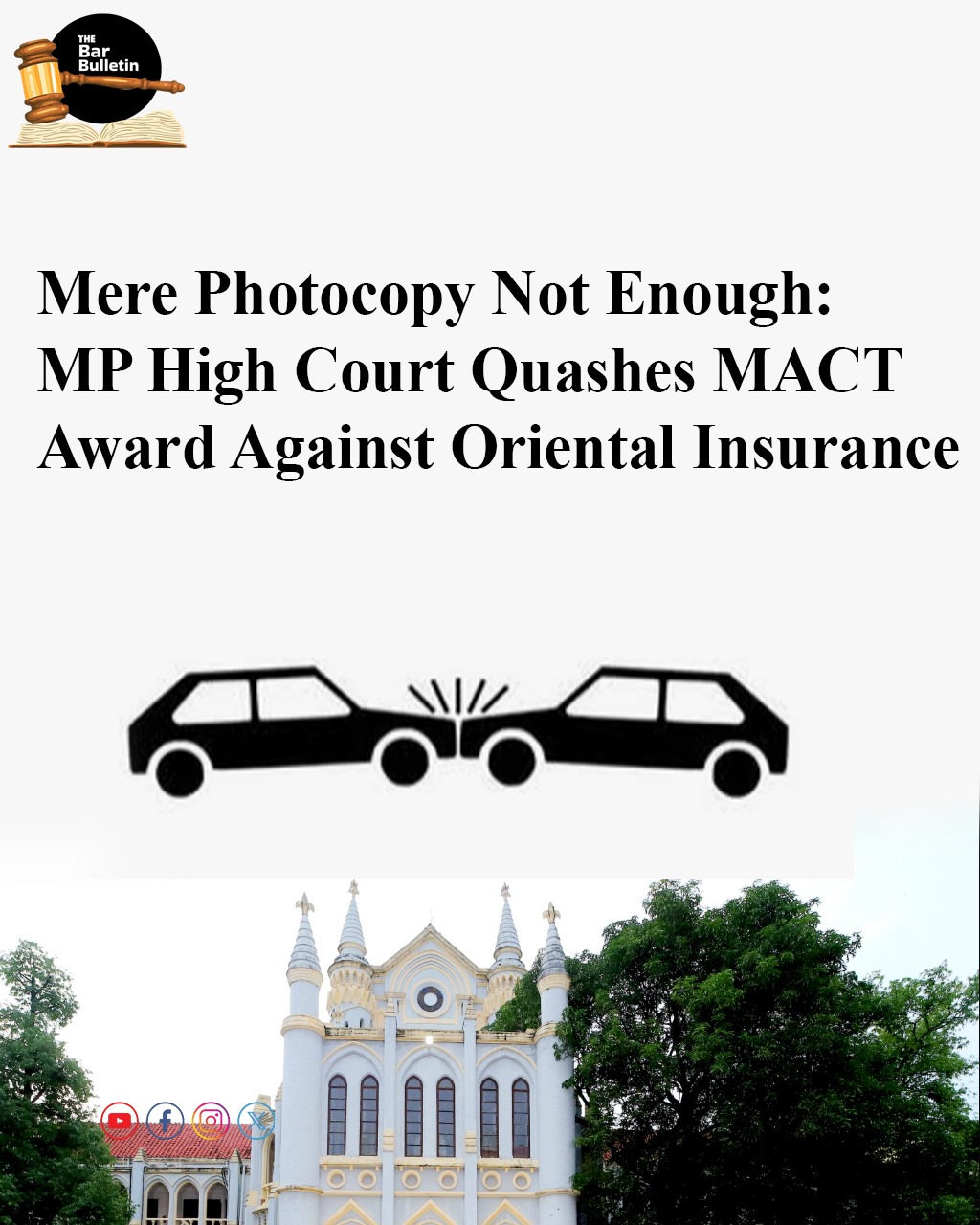The Madhya Pradesh High Court at Jabalpur allowed an appeal filed by Oriental Insurance Company Ltd., setting aside a 2005 Motor Accident Claims Tribunal (MACT) award that had held the insurer jointly and severally liable to pay ₹4,07,000 in compensation along with the vehicle owner and driver.
The case arose from a 1999 road accident in which the driver of an auto-rickshaw, sustained serious injuries after being hit by a truck. The MACT, Rewa, awarded compensation in the claimant’s (driver) favour, making the insurer equally liable.
The insurer challenged the award on two main grounds: first, that the insurance policy was not duly proved, and second, that the driver of the offending vehicle did not possess a valid driving licence at the time of the accident. The company argued that only a photocopy of the alleged insurance policy was produced, which was neither verified nor authenticated, and that its Allahabad and Lucknow offices confirmed that no such policy had been issued. Furthermore, the policy had not been exhibited as evidence before the Tribunal.
Justice Deepak Khot, delivering the judgment, held that the photocopy of the insurance policy could not be relied upon in the absence of the original document. As per the Evidence Act, the burden of proving the existence and authenticity of the insurance policy lay with the claimant. Since this burden was not discharged, it was impermissible for the Tribunal to presume its validity and shift the onus onto the insurer to prove forgery or fraud.
The Court also held that the driver’s licence had expired before the date of the accident specifically, the licence was valid up to February 18, 1998, whereas the accident occurred on April 30, 1999. Although the licence was later renewed, the High Court ruled that renewal after the accident does not revive or validate coverage for the interim period. The Tribunal’s conclusion to the contrary was deemed legally untenable.
The Court cited Pappu v. Vinod Kumar Lamba, (2018) 3 SCC 208, which laid down that an insurance company can only be held liable after the vehicle owner proves foundational facts, including that the vehicle was duly insured and driven by an authorised person holding a valid driving licence. In the present case, no such foundational facts were established, and the insurer had clearly denied liability from the outset.
Respondents had sought application of the “pay and recover” principle, whereby the insurer pays the compensation to the claimant and recovers it from the insured later. However, the High Court rejected this plea, stating that such relief is not available when no valid policy has been proved to exist at all. Without establishing an insurable interest or policy, the insurer cannot be forced into temporary liability.
Accordingly, the High Court partially allowed the appeal, setting aside the award against the insurance company. However, it upheld the Tribunal’s findings regarding compensation, allowing the claimant to proceed against the owner and driver of the vehicle, who were held jointly and severally liable.
Appearances:
Appellant: Shri Rakesh Jain
Respondent: Shri Aniruddh Kumar Mishra



